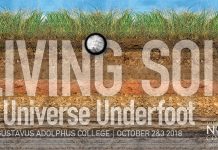I DIDN’T TELL you I was ill because—well, because I don’t tell you anything. Never have, probably never will. If my food dish is empty, sure, I clue you in. If I’m repelled by the brackish funk that wafts from my water dish no matter how recently it’s been filled—if I desire instead to slake my thirst with the crystalline rivulets that purl from your fingertips as you hold your slightly cupped hand beneath the trickling bathroom tap—I generally find a way to get that message across, too. Otherwise, I’m not the sort of creature who calls attention to herself. Besides, what do I know about kidney disease? I thought it was simply the next part of life. Less food, less weight, less movement; an ever-so-gradual decline in the gloriousness of my fur; a certain dimming of vision at the inner corners of my eyes. It crept up on me, in a sense, the way my mother used to stalk songbirds. Which remains, all these years later, the most beautiful thing I’ve ever seen.
ANOTHER BEAUTY: my doctor. The ramshackle guy with the baritone voice and the dog-themed novelty neckties, whose clinic you brought me to because he sent you a welcome-to-the-neighborhood coupon. (I’m convinced that he wears those ties post-ironically, by the way. I understand that vets commonly wear them as a sort of jocular shorthand, but mine wears his with an attitude that goes well beyond “Hey, I’m a vet—better wear the dogs-playing-poker tie so I’ll look simultaneously wacky, businesslike, and lovable.” What my doctor says with his frayed and faded neckwear is more along the lines of: “Look, people. You expect this, and I’m not judging you for subjecting me to the tyranny of those expectations, but you need to know that I’m not wearing this tie to be funny. I’m wearing it fully aware that when it’s time to put your beloved companion to sleep, you may find yourself staring through your tears at my polyester clip-on Snoopy and asking yourself about life, death, and the moral wisdom of product licensing.” That’s the kind of deep-thinking person my doctor is. If he weren’t, we’d be looking for another clinic.)
So anyway, we really lucked out with this guy. I know it makes you jealous that the very first time he picked me up I gave the loudest and longest purr of my life, a purr that turned my skeleton into a tuning fork. I know I’ve been a disappointment to you in the comfort-and-joy department. I don’t like human arms and laps. I’ll sit way out on the shins, but only when the mood takes me. The few previous times in my life when I said to myself, I wonder if this might not be a good time to purr, I felt like a fraud.
If I could comprehend why my purr mechanism kicked in so suddenly when the doctor held me in his hands—in spite of my terror and my weakened condition—I might actually try to explain it to you. It may have been nothing more than a reflex: my body’s way of trying to assure him that I was suffused with physical contentment and a Zenlike sense of peace, and, thus, had no need for his services. I may have been under the impression that he was taking me away from you for good, in which case perhaps it was a kind of happy fatalism, the condemned man singing as the ax comes down. Or maybe, after all this time with you, I had finally crossed paths, there beneath the fluorescent lights, amid the psychic and olfactory emanations of sick and frightened animals, with someone worth purring for. In any case, your envy is a waste of time. You can’t be all things to all people; you can’t even be all things to me. What matters now is my memory of the purr itself, its startling volume and resonance and sincerity. I didn’t know I had it in me.
WHAT THE VET knew I didn’t have in me was water—hence the IV bags now hanging above the broom closet in our home. It’s clear to me that you think I dread the administration of subcutaneous fluids, this new evening ritual of ours, but dread implies emotional distress, a pernicious syndrome. That would be an inaccurate description of my response to our current medical arrangements. Once the ordeal is over, my distress goes away rather quickly. It’s called living in the moment. You should try it sometime.
That may have been a cheap shot.
Of course, the downside of living in the moment is that you fail to realize, over and over again, that any particular moment is ever going to end. You’re down on the kitchen floor, wrapped in a towel that does nothing to cut the chill of the hard tile. One of your people has you pinioned there, the palm of his left hand squashing your hindquarters, the fingers of his right hand entwined in the scruff of your neck. Your other person, the one you trust more, takes a big pinch of the skin over your shoulders, lifting it away from your lean and knobby torso to form a sort of tent. Her thumb and middle finger hold the skin while her forefinger pokes a dimple into the tent wall. This is where the needle will go in. It’s a big one—proportionately speaking, the size of a drinking straw. The idea is to let its tip hang suspended between the plucked-up skin and what’s left of the meaty part of your body. It doesn’t always get there on the first try. While this is happening, both of your people are talking with forced cheer about how much they love you and what a good girl you are and how much better you’re going to feel when this is over, but their voices are all tension and no authority. If you could more clearly remember your doctor right now—his masterly bearing, his learned hands—you would barter anything to be delivered to the steel-topped table in his clinic. But you can’t, and the needle goes in with a small, unmistakable sound, and the fluids start to flow, and this is your eternity. Some cool, edgeless, liquid body is growing between your rib cage and your skin. This is what you do now: you writhe and you keen.
THERE ARE OTHER eternities, glimpsed and overheard as we all sit in front of the television, to which I pay little attention. A war, a planet in dire straits, tennis matches, home remodeling, crime investigations and trials, dance contests, people speaking in mocking tones and being rewarded with laughter. I like it when you build a fire; I like the warmth and the flickering. All warmth is good: the heating pad on the sofa, the hot water bottle in the underwear drawer, the radiators, the lunchtime sunbeam in the child’s room upstairs. On the carpet up there, sprawled amid the Legos and the Star Wars weaponry, dust motes drifting in that tilted ingot of perfect light and heat, I have what I need. It’s nice when you join me there and rub my belly and tell me how, in the sunshine, my black fur turns a magnificent cocoa brown. It’s nice when you don’t, too.
There’s that myth about the nine lives—I think about it occasionally. We get only one that I’m aware of, and despite what it may look like at times, I’m clinging to mine quite fiercely. It’s just that my fierceness is nothing like yours. It’s possible that you will never understand this. I hear you say you wish you could ask me if I know you mean to help me with all this: the fluids, the antibiotics, the special food, the hospitalization. It’s not a question I would answer. Then again, what is? If it matters, though, I’ll say this: I’m as happy as I’ve ever been.
Contributing editor Jeff Johnson lives in Minneapolis. His column, “A Likely Story,” appears monthly.






